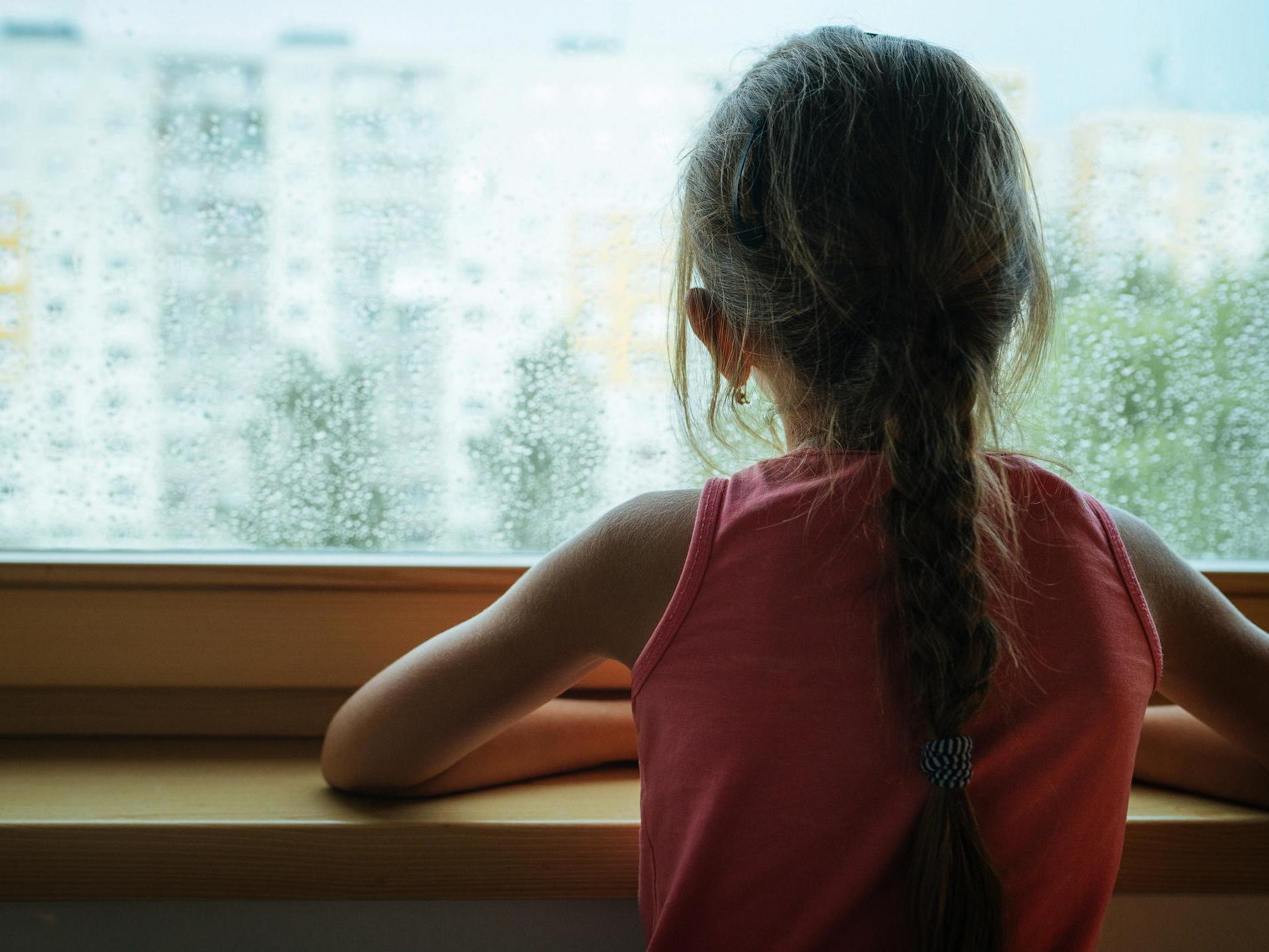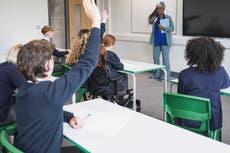Children ‘self-harming due to UK’s cost of living crisis’
Millions of youngsters are ‘at breaking point’ and many are having suicidal thoughts, charity says

Britain’s children are suffering a mental health emergency, with rising numbers self-harming and having suicidal thoughts because of the cost of living crisis, a report claims.
Researchers found millions of youngsters are “at breaking point”, with stress and anxiety among children reaching “alarming” levels because of the effect of rising bills.
Around one in three parents who took part in the study said their children had raised worries about the cost of living crisis, and of these nine per cent said their children had started self-harming. A similar number said their children had shown suicidal tendencies.
At least half (53 per cent) of people questioned by researchers said they knew someone who had taken their own lives, had attempted it or had thought about it.
A nine-year-old girl told the study team: “Your emotions just drown you and the only emotion that’s left is sad.”
A seven-year-old said: “When I feel hungry, I ask my mother if we have any food and then she’ll tell me if there’s enough money or not. If there isn’t, I just go in the cupboards and see if there’s something and if there’s a snack, then I’ll just eat it and try to go to bed. Tomorrow she might have some more money.”
The Childhood Trust, a London child poverty charity, said the persistent anxiety for both their own and their parents’ wellbeing, as well as a lack of basics such as food and toiletries, was taking a “highly emotional toll” on children and had long-term impacts on their mental health.
The trust collected data from a national survey, other London charities, and interviews with parents and children living in poverty to compile the report. In all, 2,002 adults were interviewed, of whom 1,468 were parents. Some of the parents questioned were referring to adult children, and others to under-18s.
Nearly half – 47 per cent – of the parents who said their children had raised concerns about the crisis said their children felt stressed out by it. One in five of those parents whose children had raised concerns said their children smile less now.
Children already in poverty before the Covid pandemic feel unable to further burden their already stressed parents with their own worries, the trust said.
Nine out of 10 London charities questioned said the financial situation of their most vulnerable clients had worsened in the past six months.
Some 85 per cent of charities predicted more demand for their services due to food poverty over the next six months.
Laurence Guinness, chief executive of the Childhood Trust, said: “Ever-increasing numbers of children are going hungry and can’t sleep at night because they’re worried and anxious about their futures.
“It’s only thanks to the generosity of donors and the thousands of charities supporting children that we aren’t facing a humanitarian crisis on our own doorsteps.”
The government says eight million of the most vulnerable UK households will benefit from a new £15bn package of targeted support, worth at least £1,200 this year, including a new one-off £650 cost-of-living payment.
The October discount on energy bills has been doubled as part of a £37bn support package, and universal credit claimants are being allowed to keep £1,000 more of what they earn, the Treasury says.
Last month chancellor Rishi Sunak also announced a £500m increase in the Household Support Fund, extending it from October until March next year.
If you are experiencing feelings of distress, or are struggling to cope, you can speak to the Samaritans, in confidence, on 116 123 (UK and ROI), email jo@samaritans.org, or visit the Samaritans website to find details of your nearest branch. If you are based in the USA, and you or someone you know needs mental health assistance right now, call the National Suicide Prevention Helpline on 1-800-273-TALK (8255). This is a free, confidential crisis hotline that is available to everyone 24 hours a day, seven days a week. If you are in another country, you can go to www.befrienders.org to find a helpline near you.
This article was amended on 28 July 2022. It originally said of children that: “nearly one in 10 (9 per cent) has started self-harming, and 8 per cent have shown suicidal tendencies.” This was based on information provided by the Childhood Trust, but was incorrect. The correct position was that nine per cent of the parents who had taken part in the survey and who had said their children had raised concerns about the cost of living crisis also said their children had started self-harming, which equates to roughly 3 per cent of the total number of parents questioned. Similarly, the article referred to the percentage of children who smiled less and felt stressed out by the cost of living crisis, when these percentages actually related to the proportion of parents whose children exhibited these changes only among the cohort whose children had raised concerns about the cost of living. We also added that some of the parents questioned were referring to their adult children, while others referred to children under the age of 18.
Join our commenting forum
Join thought-provoking conversations, follow other Independent readers and see their replies
Comments


Bookmark popover
Removed from bookmarks